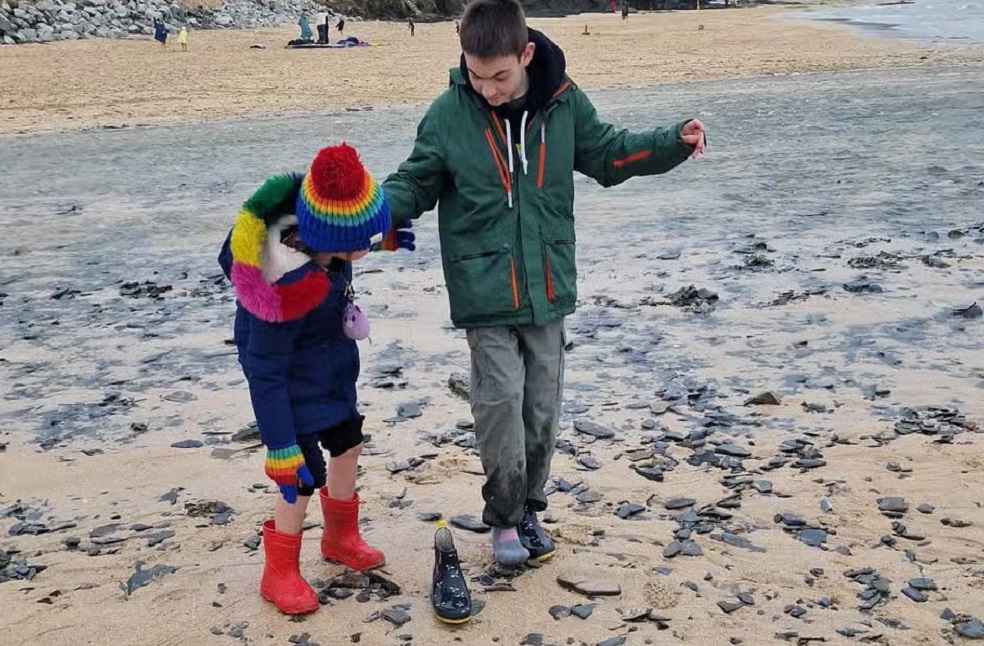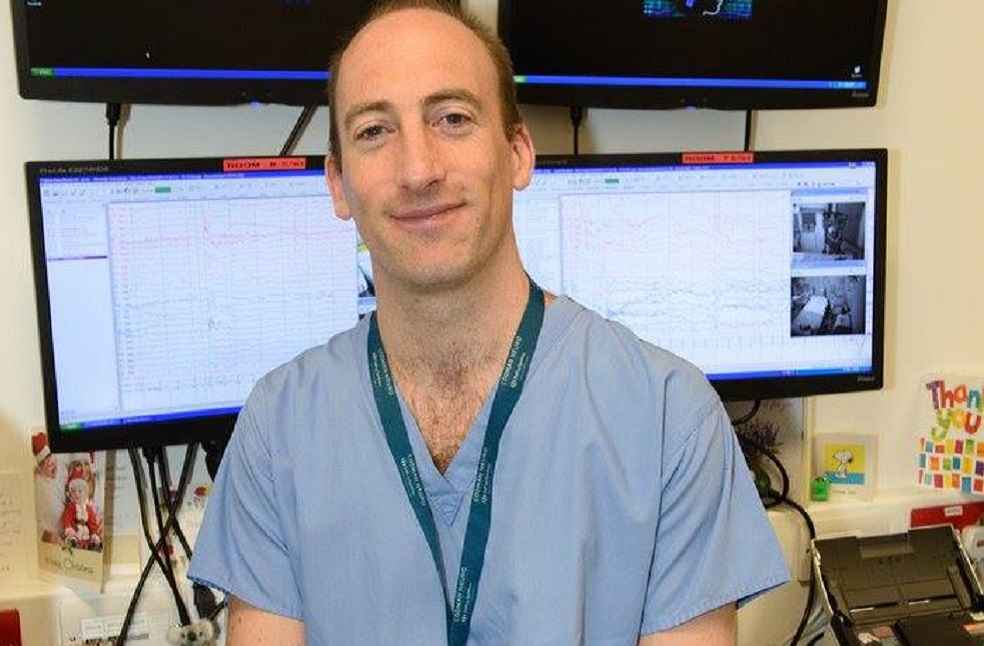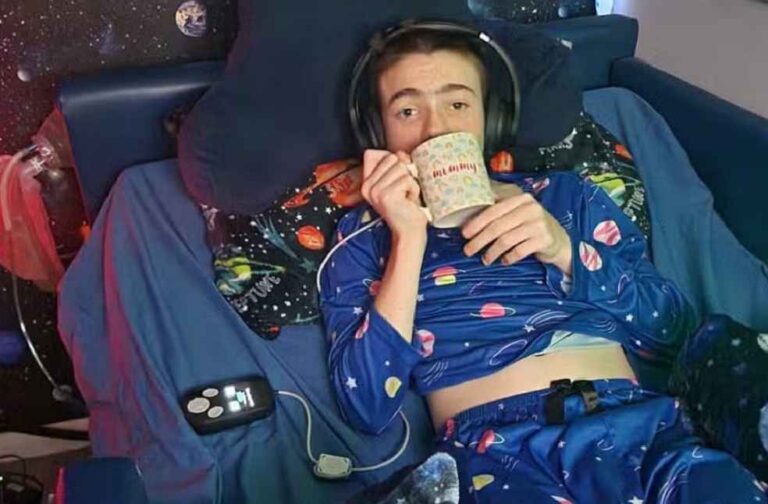London: A 13-year-old UK teenager, Oran Knowlson, has become the first person in the world to receive a brain implant designed to control his severe epilepsy. The groundbreaking procedure was performed at Great Ormond Street Hospital (GOSH) in London.
The implant, a neurostimulator developed by Amber Therapeutics, is placed under Oran’s skull and sends electrical signals to his brain, significantly reducing his seizures by 80%. This has transformed his quality of life, allowing him to be happier and more communicative.
Oran’s mother, Justine, expressed her delight at her son’s progress. “The future looks hopeful, which I wouldn’t have dreamed of saying six months ago,” she said.

Consultant paediatric neurosurgeon Martin Tisdall led the surgical team, which carefully inserted two electrodes into Oran’s brain to reach the thalamus, a critical area for neuronal communication. The electrodes connect to a small neurostimulator that can be recharged using wearable headphones.
A month after surgery, the device was activated, delivering continuous mild electrical stimulation to disrupt seizure-causing pathways. This innovative approach has not only reduced the frequency and intensity of Oran’s seizures but also enabled him to regain some independence.
This procedure is part of a trial conducted in collaboration with University College London, King’s College Hospital, and the University of Oxford. Oran’s successful treatment has paved the way for three more children with Lennox-Gastaut syndrome, a severe form of epilepsy, to receive the implant.

The trial aims to establish the effectiveness of deep brain stimulation (DBS) in treating paediatric epilepsy. Unlike previous DBS treatments where the neurostimulator was implanted in the chest, this new method places it in the skull, minimizing potential complications and infection risks.
Oran’s family is optimistic about the future, eagerly anticipating the next trial phase, which will involve the neurostimulator responding in real time to changes in brain activity to prevent seizures before they occur. Justine shared, “The Great Ormond Street team gave us hope back… now the future looks brighter.”



